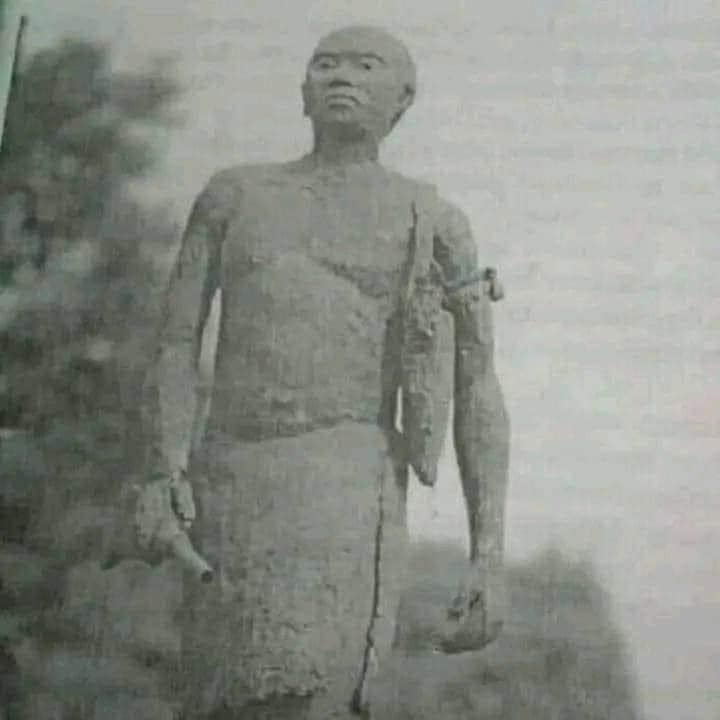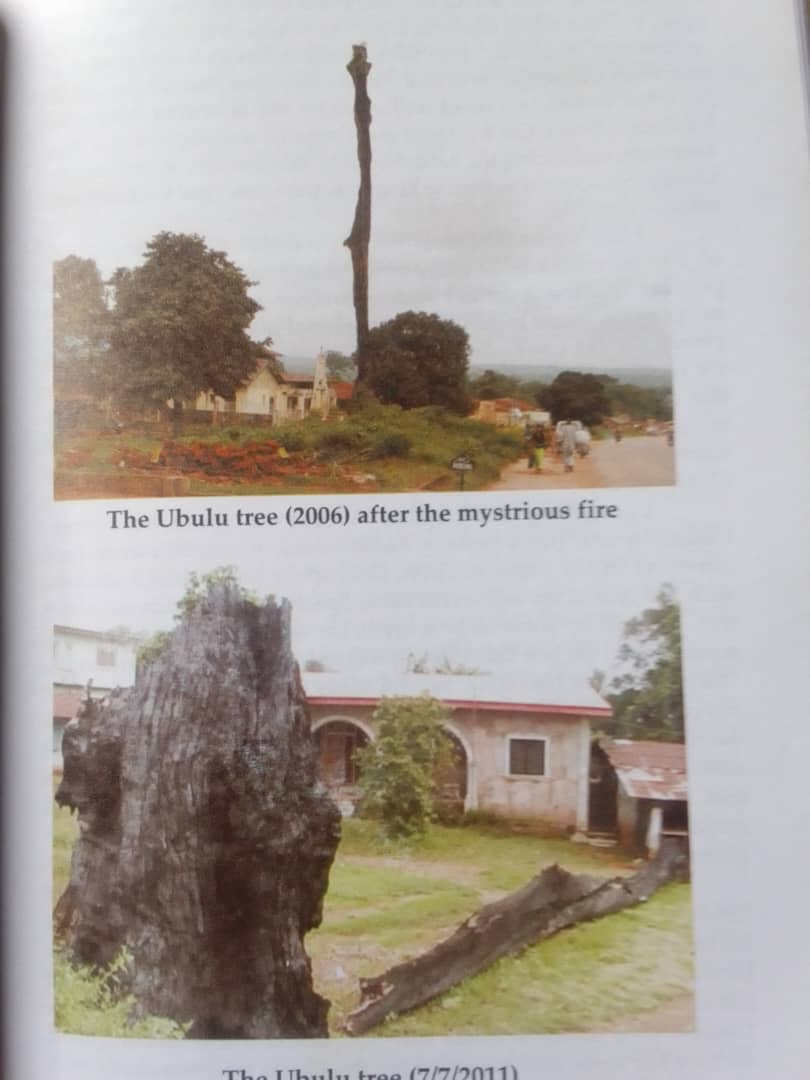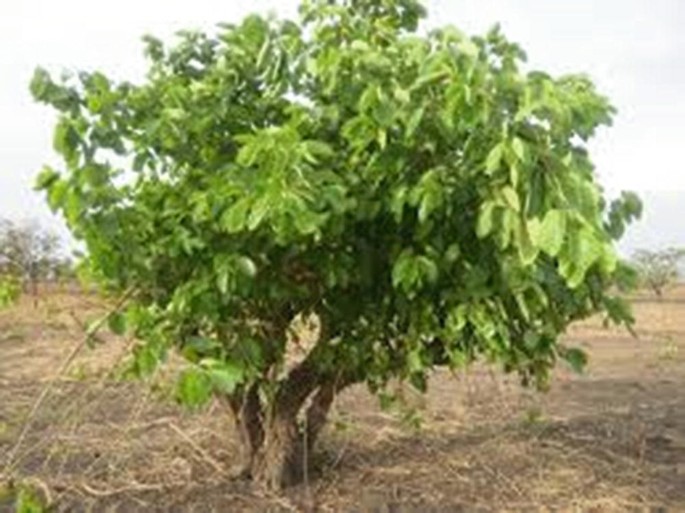Ubulu-Uku is the largest and most populous Igbo-speaking town in the Aniocha Local Government Area of Delta State, Nigeria. It is located about 30 kilometres to the west of the River Niger, and shares its borders with Ogwashi-Uku to the east, Obior to the west, Issele-Uku to the north, and Ubulu-Unor to the south.
The town is situated in a very diverse landscape, with its Enugu-Iyi and Abuedo regions at the top of long hills, its centre, which extends from the Ubulu tree to Isho, Akwu, Ogbeofu, Idumu-Osume, and a few other areas are located in a valley. Flowing down from these hills are rivers which run through the entire clan and flow to the sea through neighbouring areas. Among these rivers, Iyi Agor was their major river as it was the primary source of water supply for the town before the introduction of pipe-borne water. Other smaller streams, such as Iyi-Nta, Nkpitime-Isho, Iyi-Ozala, and Iyi-Eko, also serve different parts of Ubulu-Uku town.

According to the oral history of the Ubulu people, their town, Ubulu-Uku, was founded by Ezemu. Ezemu left his parents in Afor, a town in present-day Ndokwa, which is Ukwuani land and moved southward in search of a new settlement. After spending many years in Afor with his family, Ezemu’s parents called together their five children named Obodo, Ezemu, Alibo, Aniga, and Ekelie, and instructed them to prepare for a new expedition to establish separate settlements of their own. Before they left, their parents gave them a pot called Ududu, which was containing a mixture of herbs, and told them to settle wherever the pot fell, each heading in a different direction. As they journeyed, the pot eventually fell at Ubulu-Unor, and following their parents’ instructions, they settled there. It was from Ubulu-Unor that Ezemu later moved on to found Ubulu-Uku. Upon reaching the foot of a large Ubulu tree, from which the town and the people derive its name, Ezemu decided to settle there.
When Ezemu decided to settle in Ubulu-Uku, he begged his sister, Obodo, to join him. Unfortunately, she refused, stating that since he, Ezemu had already founded a new and bigger settlement, Ubulu-Uku, their original settlement should remain home, and be called Ubulu-Unor (Ubulu’s home).
It is also important to note that according to their oral history, Obodo was never the ruler of Ubulu-Unor, as she was a woman. None of her descendants were ever kings of Ubulu-Unor. Instead, they have always been and, are Ndi Okpala of Umuata (the descendants of Obodo).
Ezemu is believed to have had a son and a daughter called Ijedinka and Jezie. Oral tradition has often quoted that Ubulu people had a migratory history that dates back centuries.
Ezemu is known by many respected nicknames like “Eze ịsị iyọmiyọ” – The King with curly long hair, “Ezemu Ayiga”- , “Ezemu Oshi-Ani” – Ezemu who disappears, “Ezemu Ubulu” – King of Ubulu, “Ezemu Ashi-Ani” – The one the land relied upon, “Ezemu Mkpologwu” – King of herbal roots, and “Ezemu Dibia Ojegbu Ani” – The medicine practitioner unstoppable by distance. Ezemu embodied the highest human virtues which made him an extraordinary leader of his time. Ezemu was a skilled administrator, a powerful diviner, and a master diplomat. His deep knowledge of herbal medicine and strategic use of his talents helped him to secure everything he desired for his kingdom.
Ezemu’s hunting skills and herbalist knowledge is not only known in Ubulu-Uku and its immediate environs but also across the entire Bini Empire. His reputation as a herbalist was so widespread that the Oba of Benin invited him to prepare a special charm called “Izo-Idayi.” This charm helped to prolong the life of the Oba, so he told his successor to continuously summon Ezemu or his descendants whenever they ascended the throne to prepare the same charm.
Ezemu’s Origins and Ozubulu Oral History
The oral history of the people of Ubulu reveals that their town, Ubulu-Uku, was founded by a prominent person known as Ezemu. The historical account of Ezemu is part of the rich Igbo oral traditions, especially Ozubulu, one of the historic towns in present-day Anambra State. The narrative of Ozubulu’s origins points to the Omambala region, located near the serene Omambala River, which is revered as the birthplace of early Igbo civilization.
The ancestors of both Ozubulu and Ezemu embarked on a journey from the lush Omambala area. They searched for productive land that could protect them from danger and provide more opportunities to grow and develop. This quest for a better life shaped their identity and laid the foundation for the communities that would flourish in the wake of their migration.
Ozubulu’s interesting stories have a deep history tied to movements from the lush Omambala area. According to Ozubulu-USA.org, the tale about how the town was founded speaks of a line of settlers known for their great bravery and creativity.
Ezemu is a leader with important qualities. He is known as a herbalist with great knowledge of healing plants. Ezemu was also good at diplomacy and could handle difficult social situations. His story shows that he was one of the brave people who travelled a long way and came to the Ubulu area to create a lasting impact on the community.

The name “Ubulu” (Osisi Ubulu) comes from a giant tree that was situated at the center of Ubulu-Uku. This tree is known in English as “Nauclea latifolia,” while “Uku” means large/huge/big in Igbo language. Ezemu chose to settle at the foot of this tree, which, though scarred by severe burns from Christian extremists, still exists today. The deep gully nearby with water made the location an ideal, location for Ezemu to establish his settlement there. As a skilled hunter and herbal practitioner, Ezemu discovered different varieties of useful leaves and roots around the massive ubulu tree in a location that is also suited for his hunting activities. This likely occurred in the 13th or 14th century. Adventurous by nature, Ezemu explored his new surroundings and found another man named Anugwe, who occupying the east of the tree with his family in a farm enclave. To the south, Ezemu encountered a man named Ekei, who was already a king in his small community called Ani-Ekei which now forms part of Udo Village. As time went on, Ezemu formed friendships with these earlier settlers and began sharing his expertise in medicine and magic. He often traveled far from his home, visiting various communities and expanding his influence. The Ubulu tree was later associated to Ezemu and it became Ezemu’s identity index. As such, Ezemu decided to adopt the name, Ubulu. Hence, Ubulu Ezemu.

Ubulu tradition also acknowledges that Ezemu encountered existing settlers in the area now known as Ubulu-Uku. This means that Ezemu was not the first to settle there. It is also clear that these earlier settlers lived independently of one another, with no central authority uniting them at the time, just like most ancient Igbo communities were decentralised.
When Ezemu realized he had surrounded himself with enough settlers, he approached Ekei and suggested that the three groups of settlers unite and select a king from among them. After hearing him out, Ekei told him he was already old, expressing no interest in becoming the king of Ubulu-Uku.
Ezemu then shared the same proposal with Anugwe, who also declined, and told Ezemu that if he wished to be king, he should take the position since they were not interested. With this, Ezemu was acknowledged and supported by all the settlers in Ubulu-Uku.
After this, Ezemu went to Ubulu-Unor to inform his sister Obodo about his upcoming coronation. Obodo congratulated him and shaved his bushy hair to prepare him for the coronation day. When Ezemu returned to Ubulu-Uku, he was crowned king followed with great celebration.
Bibliography
- Wright, E. (2017). The Story of Ubulu Kingdom.
- Ikem EA, Obi Anene 1982. Origins and Migrations of the Enuani People of South Central Nigeria Reconsidered


